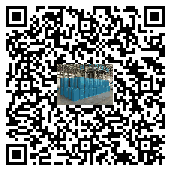Advantages of water-based nonionic wetting agents
Compared with other types of wetting agents, water-based nonionic wetting agents have a series of significant
advantages, which make them widely used in many fields. The following is a detailed description of the advantages
of water-based nonionic wetting agents:
Good wetting properties:
Water-based nonionic wetting agents can significantly reduce the surface tension of the system, thereby enhancing
the wettability of the substrate. This improvement in wetting properties helps coatings, inks, etc. to spread better on
the surface of the substrate, reduce interfacial tension, and improve adhesion and uniformity.
Excellent dispersion properties:
Nonionic wetting agents have good solubility and dispersibility in water, which can accelerate the wetting process of
the surface of pigments and fillers and improve dispersion efficiency. This is crucial for the preparation of high-performance
water-based systems such as coatings and inks.
Wide compatibility:
Water-based nonionic wetting agents generally have a wide range of compatibility and can be well mixed with other
water-based components (such as water, pigments, resins, etc.) to avoid adverse reactions or stratification.
Environmental protection and safety:
Many water-based nonionic wetting agents do not contain harmful substances such as silicone, oil and APEO, and meet
environmental standards and regulatory requirements. The use of these wetting agents can reduce VOC (volatile organic
compound) emissions, reduce environmental pollution, and also help protect the health of operators.
Good stability:
Water-based nonionic wetting agents usually have good stability during storage and use, and are not prone to deterioration
or degradation. This helps maintain the long-term stability and performance consistency of the water-based system.
Strong adjustability:
By adjusting the molecular structure and composition of the wetting agent, the wetting properties of the water-based system
can be precisely controlled. This adjustability allows water-based nonionic wetting agents to adapt to the specific needs of different
application areas.
Reduce costs:
The use of water-based nonionic wetting agents can replace some expensive surfactants or solvents, thereby reducing production
costs. At the same time, due to its good wetting and dispersing properties, it can also reduce the amount of solid components such as
pigments and fillers, further reducing costs.
In summary, water-based nonionic wetting agents are widely used in many fields such as coatings, inks, adhesives, varnishes, fountain
solutions, etc., due to their good wetting properties, excellent dispersing properties, wide compatibility, environmental protection and
safety, good stability, strong adjustability, and cost reduction. With the improvement of environmental awareness and the continuous
advancement of technology, the application prospects of water-based nonionic wetting agents will be broader.


